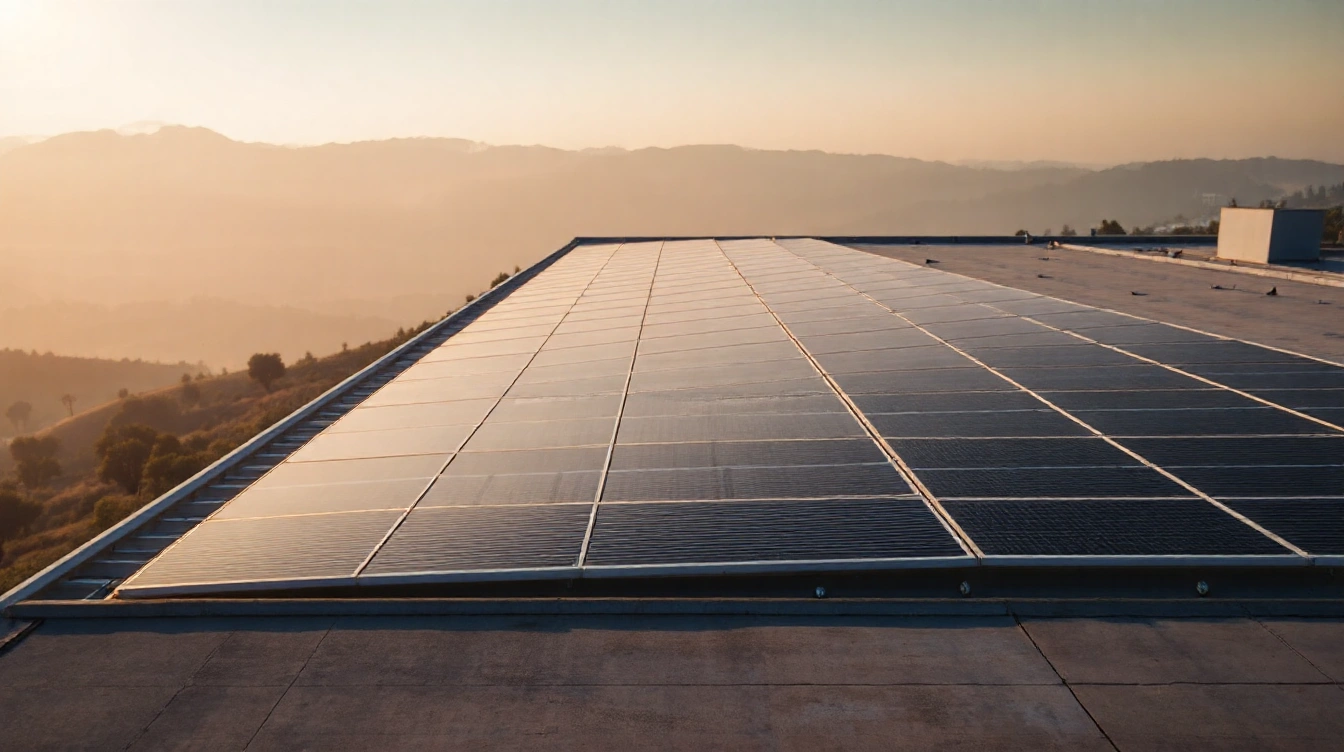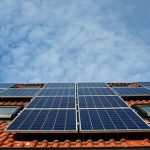Businesses face rising energy costs that squeeze profit margins. Rooftop solar solutions offer a practical way to cut electricity expenses and bolster financial health. By harnessing the sun’s power, companies can reduce operational costs, increase property value, and benefit from government incentives. Understanding how to evaluate return on investment and navigate implementation steps empowers businesses to unlock long-term savings and strengthen their bottom line.
Financial Advantages of Rooftop Solar for Businesses
Rooftop solar installation offers significant business energy savings by directly reducing electricity costs. By generating your own power, you rely less on grid electricity, which can fluctuate in price due to market demands or regulatory changes. This reduction in electricity expenses translates into immediate operational cost reduction, allowing businesses to allocate funds toward other essential areas such as growth or innovation.
Also to discover : Unlocking Membership Surge: Creative Social Media Strategies for UK Fitness Studios to Engage Potential Clients
Moreover, the rooftop solar benefits extend into the long term, improving the bottom line over several years. Solar panels typically have a lifespan of 25 years or more, providing consistent energy output with minimal maintenance costs. The initial investment is often recouped through these energy savings, making solar a financially sound choice for sustainable business operations.
Beyond cost savings, installing rooftop solar systems can enhance the property value and appeal of commercial spaces. Businesses can attract environmentally conscious clients and tenants who value sustainability, potentially increasing rental or sale prices. Additionally, the visibility of solar panels signals a commitment to green practices, which can boost brand reputation and market differentiation.
Also to see : Maximize business savings with commercial rooftop solar panels
For companies seeking to maximize these financial benefits while contributing to environmental goals, exploring solutions like retail industry solar panel installation is a well-founded strategy.
Calculating Return on Investment (ROI) for Rooftop Solar
Understanding the rooftop solar ROI is crucial for businesses considering solar panel installation. Typically, the payback period for business solar installations ranges from 4 to 7 years, depending on factors such as energy consumption, local electricity rates, and available incentives. This payback period represents the time it takes for the energy cost savings to cover the initial investment.
The payback period is directly influenced by the size of the solar system and the amount of sunlight the rooftop receives. Businesses with higher energy demands can benefit from larger solar arrays, which generate more substantial savings on electricity bills each year.
When estimating the potential annual savings, it’s important to consider both the reduction in electricity costs and the benefits of solar tax credits or rebates. These incentives can significantly improve the solar investment returns by lowering upfront expenses or providing ongoing financial credits. On average, commercial rooftop solar panels can save businesses thousands of dollars annually, contributing to a compelling return rate.
Evaluating the total lifetime value of a rooftop solar investment goes beyond just the payback period. Solar panels typically have a lifespan of 25 to 30 years, during which time businesses can enjoy reduced operational costs and protection against rising energy prices. Factoring in maintenance costs and degradation rates, the overall value of the investment often exceeds initial expectations.
For companies interested in maximizing business savings, exploring options like Retail Industry Solar Panel Installation can provide guidance tailored to commercial needs and site-specific conditions. These programs often include feasibility assessments and financial analyses to help businesses make informed decisions about solar energy investments.
Government Incentives and Financial Support for Solar Installations
Understanding how to boost your solar investment
Government solar incentives and business tax credits are key tools that make solar panel installation more affordable for businesses. These incentives often come in the form of tax rebates, direct subsidies, or accelerated depreciation, designed to reduce the upfront costs and improve the return on investment for companies adopting renewable energy.
To access these benefits, businesses should explore both local and federal support programmes. For example, many countries offer renewable energy grants targeting commercial properties, making it easier to cover installation expenses. Identifying the right program involves examining eligibility criteria, application deadlines, and the scope of incentives available. Combining these with other financing options like low-interest loans or leasing plans can significantly maximize savings by lowering the net cost of your solar installation.
By leveraging multiple sources of financial support, businesses can effectively reduce capital expenditure while promoting sustainability. Properly navigating these solar incentives not only helps in cost management but also accelerates the journey towards energy independence and environmental responsibility.
Steps to Implement Rooftop Solar for Maximum Savings
Implementing business solar begins with a thorough solar installation guide focused on assessing your unique business suitability and site requirements. This step ensures that your rooftop receives optimal sunlight and structural integrity supports the system. Factors such as roof orientation, shade analysis, and energy consumption patterns are critical in determining the best system size and type. A detailed site evaluation forms the foundation for a successful rooftop solar process.
Next, selecting reputable solar providers is crucial. Choose companies with proven experience in business solar implementation to guarantee high-quality solar panels and expert installation services. The choice between monocrystalline, polycrystalline, or thin-film solar panels depends on your energy goals, budget, and roof condition. Engaging with specialists helps tailor the system to maximize efficiency and return on investment.
After installation, managing ongoing maintenance and system optimization is vital for sustaining performance. Regular inspections, cleaning, and monitoring software can detect and resolve issues early, ensuring maximum energy savings. This holistic approach to the rooftop solar process not only reduces operational costs but also enhances your business’s sustainability profile. For businesses looking to deepen their understanding and benefits, exploring resources like Retail Industry Solar Panel Installation can provide valuable insights into maximizing commercial rooftop solar opportunities.
Real-World Case Studies: Businesses Succeeding with Rooftop Solar
Exploring solar case studies reveals how businesses across various industries have leveraged rooftop solar installations to achieve significant financial benefits. One common theme in these examples is the impressive commercial solar ROI, demonstrating that investing in solar power is not only environmentally responsible but economically smart.
For instance, a manufacturing company reduced its electricity expenditures by more than 40% within the first year of installing rooftop solar panels. This business solar success stemmed from decreased reliance on grid power during peak hours and favorable net metering policies, enabling the company to sell excess energy back to the grid. Such outcomes highlight the crucial impact of solar on operating costs.
In retail, several businesses reported substantial savings by combining energy efficiency measures with solar installations, which lowered monthly utility bills and improved profit margins. These solar case studies confirm the value of rooftop solar as a strategic investment for stores aiming to reduce overhead. One retail chain enhanced its green credentials while enjoying a rapid payback period thanks to predictable and reduced energy expenses.
Service-sector companies also showcase the versatility of solar solutions. A regional office park implemented commercial solar panels, leading to measurable reductions in annual energy spending and increased sustainability ratings. These cases highlight that solar’s benefits extend beyond cost savings to include strong corporate responsibility signaling.
Overall, these examples show the power of strategically deployed rooftop solar to deliver consistent financial returns across sectors. For businesses interested in exploring such success, Retail Industry Solar Panel Installation offers a valuable resource to maximize energy savings and economic outcomes.











